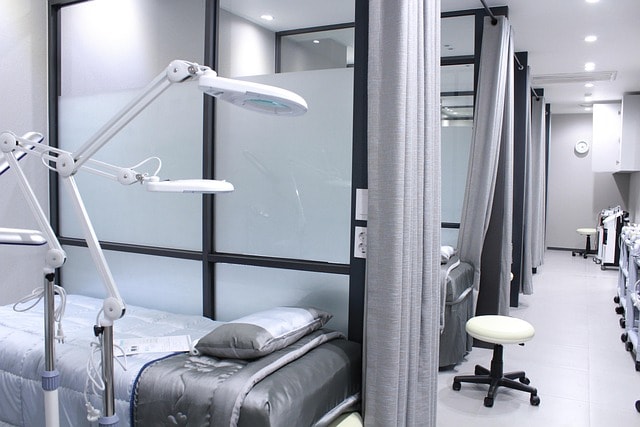Can you get fired for being sick? In most cases, no. Federal laws like FMLA and ADA protect you from being terminated due to an employee’s illness. Learn about these protections and what to do if you’re fired for being sick.
Key Takeaways
- Federal laws like FMLA and ADA protect sick employees from getting fired for being sick and ensure job security during health issues.
- Understanding what qualifies as serious health conditions and disabilities helps employees navigate their rights and request necessary accommodations.
- If wrongfully terminated due to illness, employees should act quickly, seeking legal advice and documenting evidence to support their case.
- Various state and local laws requiring employers to provide paid sick leave offer additional protections beyond federal laws.
Legal Protections for Fired for Being Sick

Navigating the complexities of employment law can be daunting, especially when you’re dealing with health issues. Thankfully, there are robust legal protections in place for sick employees. The Family and Medical Leave Act (FMLA) and the Americans with Disabilities Act (ADA) are the cornerstone federal laws that protect employees from being fired due to illness. Together, these laws ensure that employees can take necessary leave without fear of losing their jobs and promote a fair and supportive work environment. In addition to federal laws, local laws can also provide significant protections for sick employees.
Under the FMLA, eligible employees can take up to 12 weeks of unpaid leave for serious health conditions without losing their job. This job protection is crucial for those facing significant health challenges. Meanwhile, the ADA prohibits discrimination against employees with disabilities and requires employers to provide reasonable accommodations. These accommodations can make a world of difference for employees who need adjustments to their work environment or schedule due to their health conditions.
These protections are crucial for any employee to understand. The following subsections delve deeper into the specifics of the FMLA and ADA, detailing how they function and their significance.
Family and Medical Leave Act (FMLA)
The Family and Medical Leave Act (FMLA) is a federal law. It allows eligible employees to take up to 12 weeks of unpaid, job-protected leave each year for serious health conditions. This means that if you or a family member are dealing with a significant health issue, you can take time off without the fear of losing your job. The FMLA covers a range of conditions, from chronic illnesses to injuries requiring ongoing treatment.
Employees qualify for FMLA leave if they have worked for their employer for at least 12 months and clocked at least 1,250 hours over the past year. The leave can be taken all at once or intermittently, depending on the medical necessity. Importantly, the FMLA also protects employees from retaliation, ensuring that taking leave does not negatively impact their employment status. Understanding both state and federal laws is crucial for employees to fully grasp their rights under the FMLA.
While the FMLA does not mandate paid leave, it provides critical job protection, which can be a lifesaver during challenging times. Many states have additional laws that may offer paid sick leave, further bolstering the protections available to employees.
Americans with Disabilities Act (ADA)
The Americans with Disabilities Act (ADA) is another crucial federal law that protects employees with disabilities from discrimination in the workplace. Under the ADA, employers must offer reasonable accommodations to employees who have disabilities. However, these accommodations should not create an undue hardship for the business. This can include modifications to work schedules, job duties, or even the physical workspace itself. The ADA also protects against an adverse job action for being regarded-as disabled, or having a record of a disability.
Under the ADA, a disability is characterized as a physical or mental impairment. This impairment must significantly restrict one or more major life activities. Conditions like depression, cerebral palsy, and multiple sclerosis are examples of disabilities covered under the ADA. To benefit from these protections, employees must disclose their disability to their employer and request the necessary accommodations.
While the ADA provides robust protections, it does not shield employees from termination for reasons unrelated to their disability. Terminating an employee because of their disability would violate the ADA. Understanding these nuances can help employees advocate for their rights and seek the accommodations they need to perform their job effectively.
Defining Serious Health Conditions and Disabilities

Understanding what qualifies as a serious health condition or disability is key to knowing your rights under the FMLA and ADA. Under the FMLA, a serious health condition includes serious illnesses or injuries that require overnight hospitalization or ongoing treatment from a healthcare provider. Chronic health conditions like asthma or diabetes, which can lead to episodic incapacitations, are also covered.
To qualify as a serious health condition under the FMLA, an illness must result in a period of incapacity lasting more than three consecutive calendar days and involve ongoing medical treatment. Conditions like severe depression and treatment for substance abuse also fall under this category, providing a broad range of protections for employees dealing with serious health issues.
The ADA defines a disability more broadly, encompassing physical or mental impairments that substantially limit a major life activity. This broader definition ensures that a wide range of conditions, from mental health issues to chronic illnesses, are covered. Understanding these definitions helps employees navigate their rights and seek the necessary leave or accommodations to manage their health conditions effectively.
At-Will Employment and Its Implications
At-will employment is a common arrangement in the United States, where an at-will employee can be terminated for any reason, or even no reason at all, as long as it is not illegal. This can be a double-edged sword, offering flexibility to employers but often leaving employees feeling vulnerable, especially when dealing with health issues.
However, exceptions to at-will employment exist, particularly for employees covered by contracts or union agreements. More importantly, federal laws like the FMLA and ADA provide critical protections that limit an employer’s ability to fire an employee for taking sick leave. For instance, under the FMLA, an employer cannot fire an employee for taking leave due to a serious health condition.
While at-will employment allows for a broad range of termination reasons, an employer can fire an employee due to a protected health condition or disability is generally an illegal reason. Employees must understand these exceptions and the protections provided by laws like the FMLA and ADA to safeguard their rights against wrongful termination. If an employer fires an employee for these reasons, it may constitute wrongful termination.
Fired for Being Sick: When is it Allowed?
Firing an employee for being sick can be a complex issue, and employers must navigate a web of federal and state laws to ensure they are not violating an employee’s rights. Under the Family and Medical Leave Act (FMLA), eligible employees are entitled to take up to 12 weeks of unpaid leave for a serious health condition, including their own or a family member’s illness. However, if an employee is taking paid sick leave or unpaid leave for a reason not covered by the FMLA or Americans with Disabilities Act (ADA), an employer may be able to terminate their employment.
Employers must consider the employment law and state laws that apply to their business, as well as their own internal policies and procedures, when making decisions about sick employees. If an employee’s health condition is not covered by the ADA or FMLA, an employer may be able to fire them for missing work or taking too many sick days. However, employers must be cautious not to violate federal laws or state laws that provide legal protections for employees with disabilities or serious illnesses.
In some cases, an employer may be able to fire an employee for being sick if the employee’s health condition renders them unable to perform their job duties. However, employers must provide reasonable accommodations to employees with disabilities and engage in an interactive process to determine whether the employee can perform the essential functions of their job. Employers who fail to provide reasonable accommodations or who fire an employee for a bogus reason may be liable for wrongful termination.
Reasonable Accommodations Employers Must Provide
One of the cornerstones of the ADA is the requirement for employers to provide reasonable accommodations for employees with disabilities. These accommodations are designed to help employees perform their job duties despite their health conditions. Examples include modifying work schedules, adjusting job responsibilities, or making physical changes to the workplace.
Reasonable accommodations must be provided unless they impose significant difficulty or expense on the employer, known as undue hardship, regardless of the medical condition. This means that while employers are required to make adjustments, they are not obligated to make changes that would be excessively burdensome. However, in many cases, reasonable accommodation are relatively minor and cost-effective, making them feasible for most employers.
Failure to provide reasonable accommodations can be seen as discrimination under the ADA, highlighting the importance of employers and employees working together to find suitable solutions. Understanding the right to request accommodations and knowing the process for doing so is crucial for employees to maintain job performance and well-being.
State Laws Offering Additional Protections
While federal laws provide a strong foundation of protections for sick employees, many states have enacted additional laws that require employers to offer even greater safeguards. For example, fifteen states and Washington, D.C., have implemented mandatory paid sick leave laws for private employers, offering more comprehensive benefits than federal regulations. These laws often vary in terms of the maximum allowable use of paid sick leave, ensuring that employees have the time they need to recover without financial strain.
Some state laws also allow employees to use paid sick leave for reasons beyond their own illness, such as safe time related to domestic violence or stalking. This expands the scope of traditional sick leave and offers greater flexibility for employees facing various personal challenges.
Additionally, state workers’ compensation laws often include provisions for leave, ensuring that employees injured or disabled on the job receive the necessary time off. Understanding the specific sick leave laws in your state can provide additional protections and help you navigate your rights more effectively.
Staying informed about both federal and state laws enables employees to better advocate for their needs and ensure job security during times of illness.
What to Do If You Are Fired for Being Sick

If you find yourself fired for being sick, it’s crucial to take immediate steps to protect your rights. Contact an employment lawyer to review your case and determine if you have grounds for a wrongful termination claim. Legal experts can provide invaluable guidance on the best course of action and help you understand your rights under federal and state laws.
Keeping thorough documentation of your illness, job performance, and any related communications with your employer is essential. This evidence can be critical in building your case and demonstrating that your termination was a bogus reason and unjustified. If you believe your termination was due to a protected characteristic, such as gender identity or national origin, this could strengthen your case for wrongful termination.
Additionally, seek legal guidance before signing any severance package to ensure you fully understand its implications and do not waive your rights unknowingly. Taking these steps helps you navigate the complexities of wrongful termination and seek the justice and compensation you deserve.
Remember, being informed and proactive is the best way to protect your rights and secure your future.
Filing Complaints and Seeking Legal Action
Filing a complaint with the Equal Employment Opportunity Commission (EEOC) is often a necessary step if you believe you have been wrongfully terminated due to illness. Complaints must typically be filed within 180 to 300 days of the termination, so timely action is crucial. The EEOC allows complaints to be filed online, in person, or by mail, and it’s important to include specific details about the discrimination experienced. Employment lawyers often specialize in various practice areas, such as wrongful termination, discrimination, and wage disputes, which can be crucial for building a strong case.
Filing a charge with a state or local agency often automatically files a complaint with the EEOC through dual filing. This ensures your case is reviewed by the appropriate authorities and can expedite resolution. Filing a charge of discrimination is a prerequisite for pursuing a lawsuit for unlawful discrimination in most cases.
Seeking legal advice is essential throughout this process, as an employment lawyer can help you navigate the complexities of filing complaints and pursuing legal action. With the right support, you can challenge wrongful termination and seek the compensation and justice you deserve.
Damages and Remedies for Wrongful Termination
If you are wrongfully terminated due to illness, you may be entitled to various damages and remedies. These can include compensation for lost wages, emotional distress, and even punitive damages if the employer’s actions were particularly egregious. The goal of these damages is to make the wrongfully terminated employee whole again and to penalize the employer for unlawful behavior. Discrimination based on gender identity can also be a factor in wrongful termination cases, and employees may be entitled to additional damages if this is proven.
In addition to financial compensation, employees who successfully challenge wrongful termination may be entitled to reinstatement to their prior job position. This can be a significant remedy, especially for those who value their job and want to continue their career with the same employer. Legal costs and attorney fees can also be recoverable, ensuring that employees are not financially burdened by seeking justice.
Understanding these potential remedies can empower employees to take action against wrongful termination and seek the compensation they deserve. With the right legal options and support, employees can hold employers accountable for unfair treatment and secure their rights in the workplace.
Summary
In summary, understanding your rights as an employee when dealing with illness is crucial for protecting your job and well-being. The Family and Medical Leave Act (FMLA) and the Americans with Disabilities Act (ADA) provide essential protections, ensuring that employees can take necessary leave and receive reasonable accommodations without fear of wrongful termination. Additionally, state laws often offer further protections, such as paid sick leave and safe time for victims of domestic violence. Additionally, protections against discrimination based on national origin ensure that employees are treated fairly regardless of their background.
If you find yourself fired for being sick, taking immediate action by contacting an employment lawyer and keeping thorough documentation is essential. Filing a complaint with the EEOC and seeking legal action can help you challenge wrongful termination and seek the compensation and justice you deserve.
By staying informed about your rights and the legal protections available, you can navigate the complexities of employment law and ensure your job security during times of illness. Remember, knowledge is power, and understanding your rights is the first step in protecting yourself and your career.
Frequently Asked Questions
Can my employer fire me for taking too many sick days?
Yes, but if your sick days are protected under laws like FMLA or ADA, you’re safe from being fired, but if those absences aren’t protected and you take too many, or if your work schedule is significantly impacted, your employer could terminate your employment.
What qualifies as a serious health condition under the FMLA?
A serious health condition under the FMLA is any illness or injury that needs ongoing treatment or hospitalization, like chronic conditions such as asthma or diabetes. If you’re dealing with something that requires consistent care, it likely qualifies.
What are reasonable accommodations under the ADA?
Reasonable accommodations under the ADA can be things like adjusted work hours, changes in job duties, or extra sick leave, as long as they don’t put a major strain on the employer. It’s all about creating a fair work environment!
How do I file a complaint if I am wrongfully terminated?
If you believe you were wrongfully terminated, file a complaint with the EEOC within 180 to 300 days, making sure to include all the details about any discrimination you faced. Don’t wait too long to take action!
What damages can I claim for wrongful termination?
You can claim lost wages, emotional distress, and possibly even punitive damages and reinstatement to your old job. It’s definitely worth exploring what you might be eligible for! Here is a tool that can help you evaluate your potential damages.



